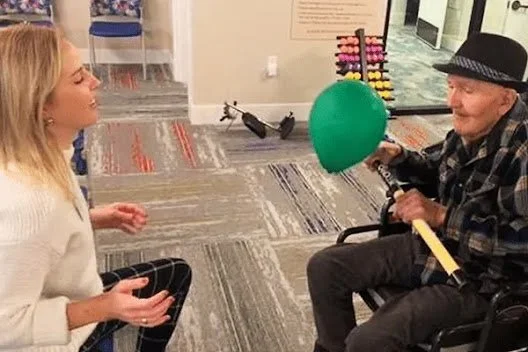Engaging with People Living with Alzheimer’s Disease
A Yale Medicine neurologist offers advice on how to better connect with someone with Alzheimer’s disease. Carolyn Fredericks, MD., a specialist in cognitive and behavioral conditions, including Alzheimer’s, says it is not always helpful to correct a person with Alzheimer’s, and in most cases, it is nicer to just “enter their reality.”
Fredericks suggests instead of correcting the person when they get your name or someone else’s name incorrect, just go with it. After all, what difference does it really make? Also, you don’t need to remind the person you answered their question an hour ago. Let it go and repeat the answer.
Going along with what the person says, and remaining calm and encouraging will help them remain calm. Research indicates someone with Alzheimer’s is typically most anxious about making mistakes or forgetting something they should know in the early stages of the disease. Moreover, when they repeat a question, they are not trying to be difficult, so there is no reason to make them feel uncomfortable. If the person is unduly worried about something that is not true such as thinking things that go “missing” are being stolen, show compassion and focus on helping them find the items.
As long-term memories are more intact in people with Alzheimer’s and often not affected until the later stages of the disease, spending time reminiscing about things from their childhood can be fun for you and the person. Even in advanced stages of Alzheimer’s, people find joy in listening to their favorite music or participating in creative projects. Be sure they get some exercise each day as it helps with anxiety and sleep. Lastly, Dr. Frederick says it is important for the family to construct a safety plan and recognize when it is no longer safe for the person to drive or use the stove when he/she is alone.
Along with independent and assisted living, MorningStar at West San Jose provides holistic care to seniors with Alzheimer’s and other dementia-related diseases. Lavender Sky, our programmatic approach to care represents our philosophy of everything we believe and strive for in service to our memory-impaired residents. Our ambition under a Lavender Sky is to Enter, Embrace and Explore as we encourage and engage our residents as well as help families to heal and hope again. Please contact us or visit our website for more information.
MorningStar has considered it a privilege and responsibility to “cast a new light” on senior living, inspired and empowered by our unique mission: to honor, to value, to invest. Our passionate commitment to serving seniors has earned us a reputation for satisfaction that is second to none. Contact us to learn more about the finest retirement communities San Jose CA.
Source: yalemedicine.org/news/alzheimers-disease-dementia-care





